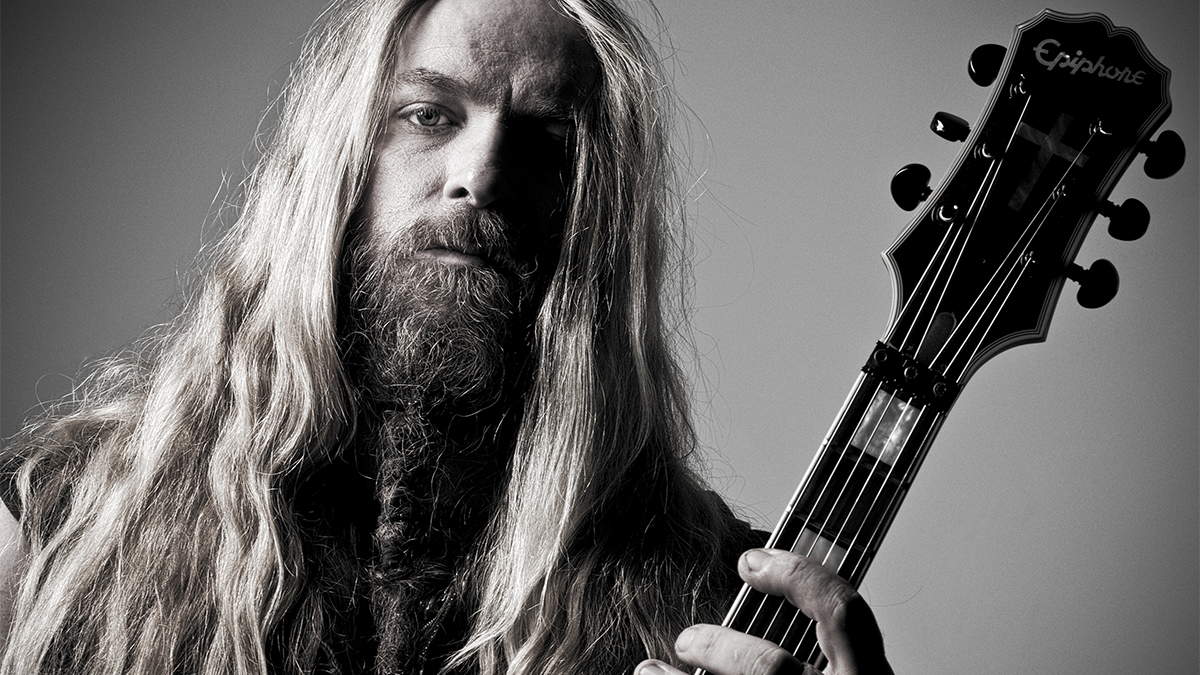“The message said, ‘Me and Ozzy have been checking you outI" Chris Impellitteri reveals his 1988 invitation to become Ozzy's guitarist and how it would have changed the singer's career
When Jake E. Lee left the band, Impellitteri was at the height of his powers as a virtuoso speed-metal guitarist

When Ozzy Osbourne left Black Sabbath, few could have expected how much his solo career would take off. Randy Rhoads’ talents were paramount to that success, and it set a precedent for the level of talent Ozzy’s future lead guitarists would be required to bring.
Bernie Tormé and Nightranger's Brad Gillis temporarily filled in for the late Rhoads after Gary Moore had turned down an offer to join. When Rhoads' first permanent successor, Jake E. Lee, left after two albums, the rumor mill started up all over again.
At that point in time Chris Impellitteri was considered one of the fastest shredders in the world thanks to his neoclassical exploits in Impellitteri. In a new chat with Guitar World, he reveals he’d been approached by Ozzy’s wife and manager, Sharon, for the job. Recalling exact details proved hazy, but his guesses do align with the end of Lee’s reign in the band.
“Let me not exaggerate that, because it's been so many years,” Impellitteri says. “What I remember — and I don’t know if Jake was still in the band – is that I was living in an apartment and I had roommates.
“I came home one night from rehearsal, and my roommate goes, ‘Oh you've got to listen to this message,’ which said, ‘This is Sharon Osbourne. Me and Ozzy have been checking you out, and we really love your guitar playing. We want you to come down and audition.’”
Impellitteri had his own band at the time, and the Osbournes' interest in him demonstrates just how his talents outshone those of his group. “I got a lot of attention for it,” he recently told Guitar Player of his talents. “Sometimes that overshadowed the band. It's been a constant tug of war trying to bring the real fans back into focus that the band's not just me."
Although Impellitteri had just signed a record deal with Relativity Records, he auditioned anyway.
All the latest guitar news, interviews, lessons, reviews, deals and more, direct to your inbox!
“I talked to Sharon, and I think Ozzy, probably three to five times,” he continues. “There was some back and forth. They basically just asked if I would come down and play with them.”
He says he played two or three songs with the band, and that they were “very interested” in the prospect of him joining. Ultimately, he missed out to a young, unknown guitarist by the name of Zakk Wylde.
But Impellitteri admits his own preference was for Ozzy's early solo albums with Rhoads and thinks he would have been the wrong choice for where the Osbourne was headed.
“I would have wanted to do something more like Blizzard of Ozz or Diary of a Madman,” he says, referring to the singer's first two solo albums. Impellitteri believes Zakk and the songs he wrote with the singer "elevated Ozzy.
"So imagine if you had this little brat kid like me, going, ‘No, no, no, we're going to do another Diary of a Madman,’" he said, laughing.
Wylde made his Ozzy debut with 1988's No Rest for the Wicked, and he says parts of that record were informed by the foundation Rhoads and Lee had laid down before them.
“I’m obviously aware of some of the great rhythm guitar parts that have been laid down in the past, like Jake E. Lee’s work on 'Bark at the Moon' and Randy Rhoads’ on 'Crazy Train,'” he says. “Those songs are part of my education as a guitarist.
“All the things I absorbed like a sponge found their way into my own playing. It’s not stealing or borrowing; it just becomes a part of your knowledge. I’m pouring little elements of a whole bunch of things into the mix and coming up with something new that I probably wouldn’t have created if I hadn’t spent the time working out what those great players had done.”

Meanwhile, Jake E. Lee, who is recovering after being shot multiple times near his Las Vegas home, has reflected on his time in Ozzy’s band and the comparisons that were naturally drawn between their playing styles.
“I don’t think it’s wrong for certain people to like my style of playing better. It’s about who speaks to you,” he had said, believing he and Rhoads excelled at different things.
A freelance writer with a penchant for music that gets weird, Phil is a regular contributor to Prog, Guitar World, and Total Guitar magazines and is especially keen on shining a light on unknown artists. Outside of the journalism realm, you can find him writing angular riffs in progressive metal band, Prognosis, in which he slings an 8-string Strandberg Boden Original, churning that low string through a variety of tunings. He's also a published author and is currently penning his debut novel which chucks fantasy, mythology and humanity into a great big melting pot.
![Impellitteri - Stand In Line [HD] - YouTube](https://img.youtube.com/vi/ZGoEAPmht-g/maxresdefault.jpg)


